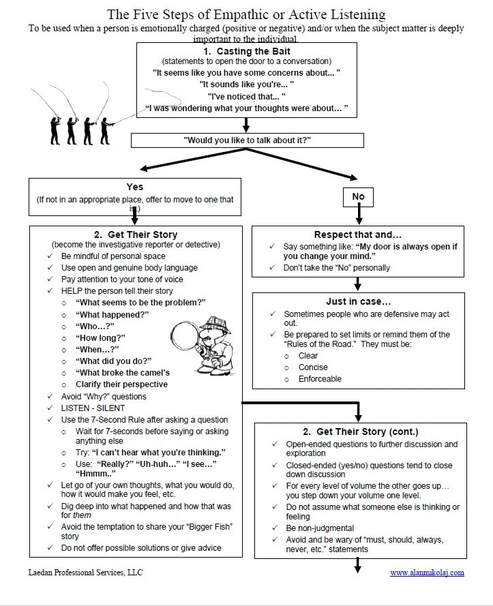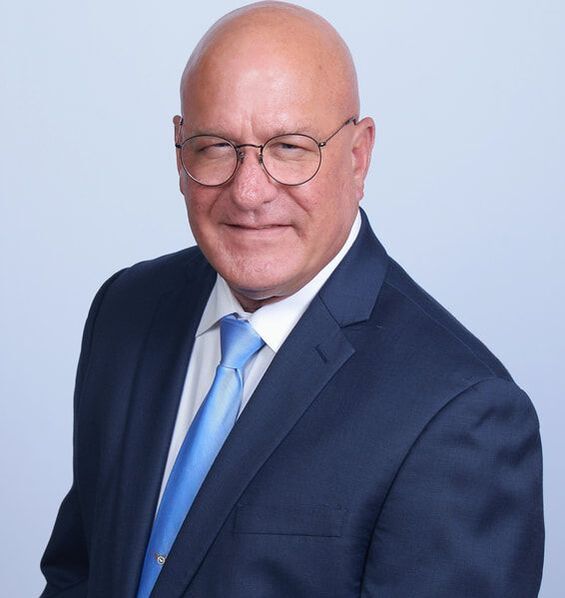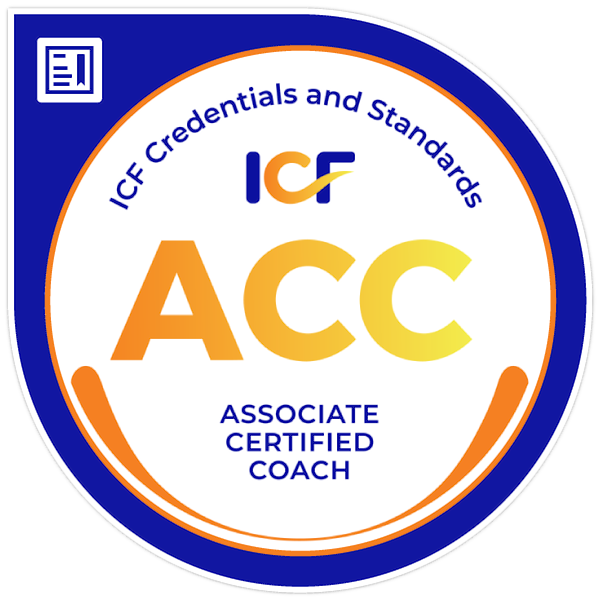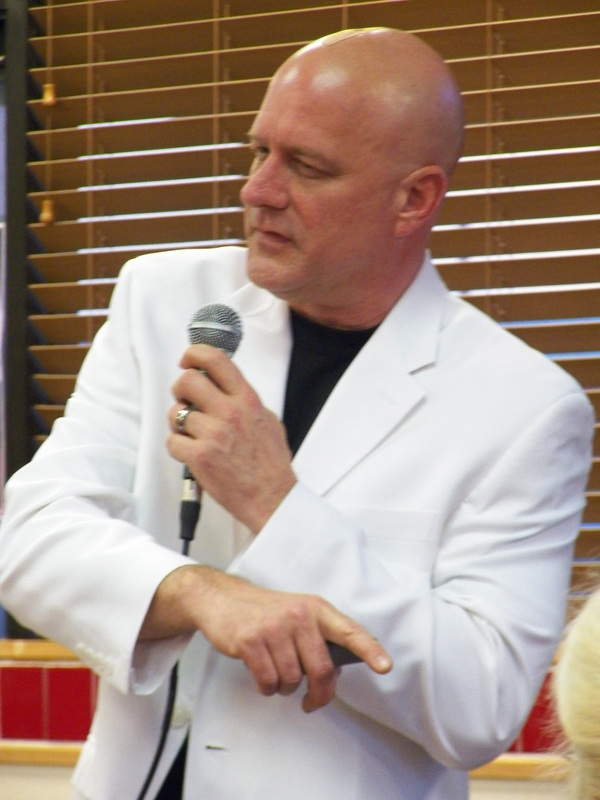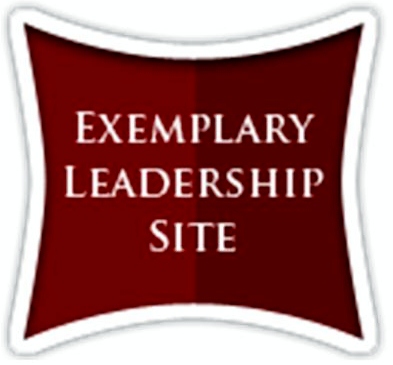Changing what you have, Alan, comes from changing who you are. THE UNIVERSE (aka Mike Dooley) ©www.tut.com I started receiving Mike Dooley's Notes from the Universe sometime in the very early 2000s. I received the above note back in early April and saved it in my Inbox until now. I've re-read it several times over the past month and I wanted to share it with you—and also to encourage you to join the over 1.2M people who receive The Notes every weekday all around the world. And while I do agree with Mike that the essence of changing what you have and who you are begins with your thoughts, sometimes changing some, or even most, of them can be quite challenging. The Challenge with Changing Thoughts Thoughts are comprised of internal physical and emotional perceptions and external physical perceptions (from the five senses) coming from the environment that form into cognitions, ideas, judgements, opinions, beliefs, and even our perspectives. When we think certain thoughts over and over again, we form longer-lasting thoughts we call attitudes. Add in automatic thoughts, thought-patterns, habits, beliefs, and biases, and I think you can see why I think there might be an ease<—>challenging continuum to changing our thoughts. And, did you know that almost every thought we have is formed automatically and out of awareness? Nikolas Dimitriadis and Alexandros Psychogios report in their book, Neuroscience for Leaders: A brain-adaptive leadership approach, that neuroscientific and psychological research has estimated that only 1-2% of total brain activity is at any level of conscious awareness—what psychology calls controlled processing. That means that a whopping 98-99% of brain activity is completely automatic processing—or what old-school psychology used to call unconscious. The science also reveals that 95% of our decisions are automatic! One example is renowned Harvard Business School Professor of Business Administration Gerald Zaltman's findings. He said, "However, in consumers’ purchasing choices, 95 percent of the decision-making process takes place below the conscious level." There's evidence that the gut microbiome affects thoughts, with psychologists and neuroscientist now calling that the gut-brain axis. Our physical state of being can drive emotions and thoughts, too. Ever been really hangry? Or sleep-deprived for several days in a row? But we do know that emotions can drive thoughts and thoughts can drive emotions and that emotions are the biggest driver of behavior. So, the cognitive-emotive connection must be considered if we want any meaningful change. So, for some of us, if not for all of us, changing at least some or maybe even most of our thoughts could be quite challenging. But not impossible by any stretch! Dr. Wayne Dyer has a bestselling book by the name, Change Your Thoughts, Change Your Life and there are countless books, blogs, and articles about how that is true. It does, however, take practice—distributed and deliberate practice, to be specific. And that kind of practice takes self-awareness, self-examination, and a new alertness to your environment and how you interact with it. It might even be helpful to get some feedback from others close to you for additional perspective. But when you identify what thoughts, feelings, perspectives, attitudes, or automatic thoughts you want to change, it's most likely going to take some practice. We have to think about thinking or what's called metacognition. Distributed Practice Distributed practice is a learning technique where practice occurs in multiple short sessions over a long period of time. It has been proven to be the best studying method for effective learning that lasts. It's also known as spaced repetition or spaced practice. Cognitive scientists and educational researchers and practitioners have long known that if your goal is to get information into long-term memory and have it available to you in both predictable and novel situations and environments, then spacing review and reflection of that information and practicing it repeatedly over time are the most effective way to achieve that. As a single footstep will not make a path on earth, so a single thought will not make a pathway in the mind. To make a deep physical path, we walk again and again. To make a deep mental path, we must think over and over the kind of thoughts we wish to dominate our lives. HENRY DAVID THOREAU Deliberate Practice Deliberate practice is a little different. Remember Malcolm Gladwell 's 10,000-Hour Rule? He popularized it in his book Outliers: The Story of Success. Gladwell’s catchy rule contends that it takes ten-thousand hours of practice to become a master in most fields. However, the authors behind the original research study on which Gladwell primarily based his figures claim that his interpretation wasn't actually accurate. The study reported on a group of violin students at a prestigious music academy in Berlin. They found that the most accomplished of those students had put in an average of ten thousand hours of practice by the time they were twenty years old. First, they were students and not even close to being masters. Second, that figure is the average number of hours of practice for the best students at twenty years old. This means that the average best student was ahead of about half of the other best students, but still behind the upper half (in terms of practice hours put in over their lifetime up to that point). Most importantly, what the authors actually describe and point out is that the students had been engaging in what is known as deliberate practice. Deliberate practice involves constantly pushing yourself beyond your comfort zone, following training activities designed by an expert to develop specific abilities, and using feedback to identify weaknesses and work on them. Once someone puts in the hours and hours of repetition to become proficient in rote skills like hand placement and scales by distributed practice, deliberate practice practice sessions are integrated into their practice regimen challenging the student to go to new levels. Schedule It! So, if we're trying to change our thoughts in order to change what we do in order to get what we want, we're probably looking at altering something or some things in our morning, daily, evening, and nightly routines and rituals. We may decide that we need to have study time or use tools, like positive affirmations, To-Do List apps, and other strategies, that we repeat on a regular basis. We may need to get creative and/or read up a little about what we really want to change or take a course or enroll in a developmental program. We may decide we want to engage with a professional, like a therapist or a coach. All GOATs, like a Tom Brady, have a coach or coaches to help them grow, change, and develop new thoughts, behaviors, rituals, and practices. Coaching is for winners who want to get better and stay ahead of their rivals or competition and/or so they can continue pursuing even higher levels of impact and success. Whatever tools and/or strategies we choose, it is important to schedule both distributed and deliberate practice in our calendars and/or set reminders to practice new behaviors, conduct thought-reflections, contemplate, say affirmations, visualizing, and practice routines and rituals. Some may simply need to be scheduled temporarily until strong habits are formed and others we may need to block out on a more permanent basis. Conclusion Changing thoughts—especially automatic thoughts—thought-patterns, attitudes, habits, and the like, can be challenging. It takes self-awareness and metacognition. And, it takes practice—first, distributed practice and then, adding deliberate practice which will need repetition, too. You can learn more about distributed and deliberate practice (and so much more!) in my Purpose-Driven Leadership Program. Finally, using our calendars and reminders and other To-Do List tools can greatly boosts our chances of success. Have an amazing journey today! Alan Mikolaj is a seasoned coach and leadership development consultant with nearly 20 years of experience. He is passionate about helping leaders transform their leadership, their teams, and their organizations. He has an impactful, professional approach driven by a passion for meaning and purpose, a growth mindset, and a commitment to excellence and service in order to drive change and results. Alan holds his Master of Arts in Clinical Psychology and Associate Certified Coach credential with the International Coaching Federation (ICF) and maintains their ethics and standards of behavior, including the standards regarding confidentiality. You can learn more about them on the ICF website. Transformational change starts with a conversation! Alan is on a mission to partner with like-minded leaders who want to make a positive difference in the world. Schedule your free, one-hour session by clicking here: Discovery Conversation with Alan Or call or email: Contact Page
0 Comments
Any manager who does not take values into account—both his own and other people's—will be a bad manager. ANTONIO ARGANDOÑA Values Clarity & Congruency's Impact on Work Outcomes Values clarification originated in the United State’s education system in the 1950’s by Louis Raths. It migrated into psychology by such figures as Lawrence Kohlberg in his moral development theory and by Carl Rogers into psychotherapy. But it wasn’t until the 1980’s and 90’s that it became popular in both cognitive-behavioral and other forms of therapy and in the self-help industry. It eventually made it’s way into business through human resources and organizational and leadership development work. Jim Kouzes and Barry Posner have been studying exemplary leaders for over 30 years. They advance their finding that the most admired leaders have one quality that stands out above all others: They have strong beliefs about matters of principle—they have a clear set of values that they live and lead by. They point out in their book, The Leadership Challenge Sixth Edition: How to Make Extraordinary Things Happen in Organizations, that leaders who express clarity about their own personal values are significantly more committed to their organization than those who are not. Clarity of personal values also positively impacted outcomes such as job satisfaction, turnover intention, and organizational pride. While clarity of organizational values also had some impact, it was personal values that made the difference. Absent clarity of personal values, being clear on organizational values did not by itself significantly impact those metrics. The studies they drew on came from 1990 and replicated again in 2010. Fast-forward to January of this year when Posner and Han extend these findings in a new study with a more global and much larger sample size. They focused on the impact that personal values' congruency, or the level of agreement or consistency between personal and organizational values, and organizational values clarity had on organizational commitment, motivation, and productivity. What did they find? Personal values congruency had a greater impact on organizational commitment, while the opposite was for true for motivation. Motivation, like "I would work harder and for longer hours if the job demanded it," was impacted more by clarity of organizational values. They both had an equally important impact on productivity. The authors said, "The lowest levels of commitment, motivation, and productivity were consistently found among those respondents who were low on both personal values congruency and organizational values clarity." So, values (still) matter. Purpose & Meaning at Work I don't have to tell you (again) how employees today are craving deeper meaning and purpose at work and all of the metrics that greater meaning and purpose at work impact. But I want to draw your attention to the bottom line: Financial performance. In a 2019 study, Corporate Purpose and Financial Performance, researchers were given access to the Great Places to Work Institute's, massive database. They conducted a data analysis of survey responses from nearly 500,000 employee's, from over 400 organizations, and at all levels within the organizations. The data spanned six years. Financial performance was assessed via operating return on assets (ROA) and Tobin's Q. What did they find? First, they identified two types of organizations with greater meaning and purpose:
Which one had the superior accounting & stock performance? High purpose-clarity organizations—and with up to a nearly 8% annual risk-adjusted stock return advantage. A Surprising Discovery And here's the surprising discovery: While senior executives reported the highest meaning and purpose at work (like you might expect), it was middle managers who drove meaning and purpose, and therefore the greater financial gains. The authors put it this way, "It is solely the middle managers and salaried professionals that drive the relation between high purpose-clarity organizations and financial performance." Purpose (still) matters. Conclusion Clarity and congruity of personal core values, organizational values, and meaning and purpose at work still matters. Senior executives need to realize and leverage the role that mid-level professionals and managers play in the interplay between them and key outcome metrics such as engagement, organizational commitment, job satisfaction, turnover intention, organizational pride, motivation, productivity, and financial outcomes. The Purpose-Driven Leadership Program can help you do that. It is a unique, powerful, enriching, empirically-driven, and engaging leadership developmental experience. Leaders who have gone through the program have called it "great," "engaging," "strong," and "brilliant." It can be delivered completely online and on-demand, hybrid, or as in-person workshops—whichever best meets you and your team's needs. Reach out to me today: Alan Mikolaj's Contact Information
Have an amazing journey today! Alan Mikolaj is a seasoned coach and leadership development consultant with nearly 20 years of experience. He is passionate about helping leaders transform their leadership, their teams, and their organizations. He has an impactful, professional approach driven by a passion for meaning and purpose, a growth mindset, and a commitment to excellence and service in order to drive change and results. Alan holds his Master of Arts in Clinical Psychology and Associate Certified Coach credential with the International Coaching Federation (ICF) and maintains their ethics and standards of behavior, including the standards regarding confidentiality. You can learn more about them on the ICF website. Transformational change starts with a conversation! Alan is on a mission to partner with like-minded leaders who want to make a positive difference in the world. Schedule your free, one-hour session by clicking here: Discovery Conversation with Alan Or call or email: Contact Page To become New Millennial Leaders we must first sit with the awareness that we are on a journey—a leadership journey—and that leadership is an art. ALAN MIKOLAJ A Travel Guide to Leadership In the ever-evolving journey of leadership, a new archetype has emerged, one that embodies the essence of love, service, and continuous growth. Let me introduce you to Sarah, a fictional character who embodies the qualities of what we may call a New Millennial Leader. As we embark on a journey through her leadership style, we'll uncover the transformative power of aligning vision, fostering genuine connections, and embracing the present moment. Setting the Stage Sarah's story begins with a childhood passion for music, a journey that taught her the art of discipline, concentration, and patience. Just like mastering an instrument, leadership demands dedication and a willingness to learn. As Eric Fromm aptly puts it when describing the art of love, leadership too is an art—one that requires awareness and continuous practice. Defining the Journey Sarah, our Modern Leader, is on a mission—a mission to serve others and contribute to something bigger than herself. She understands that success isn't just about personal achievements but about making a meaningful impact on the lives of others. With her life mission, leadership philosophy, and core values always at the center, her Leadership GPS is always on. She navigates through life with clarity, meaning, and purpose. Living with Intention Each day, Sarah takes time to reflect on her vision, mission, and purpose. She doesn't just think about them; she feels them deeply, visualizing the manifestation of her goals and embracing the emotional fire that drives her forward. Through gratitude practices and self-awareness, she realigns herself whenever she strays off course, choosing positivity over negativity. Leading with Love At the core of Sarah's leadership philosophy is love and service—love for her work, love for her team, and love for humanity. She listens empathically, communicates authentically, and nurtures genuine connections. Her team feels valued, supported, and inspired to excel, knowing that their leader genuinely cares about their well-being. Cultivating Integrity Integrity is the cornerstone of Sarah's leadership. She leads by example, upholding the highest ethical standards and fostering an environment of trust and accountability. Her genuine demeanor and transparency inspire confidence in her team, creating a culture of integrity and excellence. Embracing the Present Sarah lives in the now, fully immersed in each moment. While she sets goals and plans for the future, she understands the importance of being present and adaptable. She forgives past mistakes, learns from them, and approaches each day with optimism and resilience. Radiating Joy Perhaps the most remarkable quality of Sarah is her happiness—a genuine, deep-seated joy that emanates from her being. She finds joy in the simplest of moments, spreading positivity wherever she goes. Her infectious energy uplifts those around her, creating a ripple effect of happiness and fulfillment. Becoming a New Millennial Leader As Lao-tzu wisely said, "The greatest leaders are those the people hardly know exist." Sarah epitomizes this sentiment, leading with humility, compassion, and grace. Her journey serves as an inspiration for us all to become a New Millennial Leader—leaders who prioritize love, service, and growth in every aspect of their lives. Do you want to make a profound impact? In a world hungry for authentic leadership, Sarah stands as a beacon of hope—a reminder that true leadership is not about titles or accolades but about the profound impact we have on the lives of others. As we embark on our own leadership journey, may we strive to embody the qualities of Sarah—a New Millennial Leader who leads with love, serves with humility, and inspires with authenticity.
Have an amazing journey today! Alan Mikolaj is a seasoned coach and leadership development consultant with nearly 20 years of experience. He is passionate about helping leaders transform their leadership, their teams, and their organizations. He has an impactful, professional approach driven by a passion for meaning and purpose, a growth mindset, and a commitment to excellence and service in order to drive change and results. Alan holds his Master of Arts in Clinical Psychology and Associate Certified Coach credential with the International Coaching Federation (ICF) and maintains their ethics and standards of behavior, including the standards regarding confidentiality. You can learn more about them on the ICF website. Transformational change starts with a conversation! Alan is on a mission to partner with like-minded leaders who want to make a positive difference in the world. Schedule your free, one-hour session by clicking here: Discovery Conversation with Alan Or call or email: Contact Page Validation of your truth is the essence of respect. JENNA RYAN We have been learning lessons about empathic or active listening for the past two weeks. We finish that conversation this week. Two weeks ago in lesson one of empathic listening, we learned that silence is the foundation of empathic listening. Last week, we discovered that lessons two and three were casting the bait and getting the story, respectively. This week, we explore the final lessons of empathic listening: Validation, Define the Problem, and Resolution. Remember, that empathic listening is best used:
Lesson #4: Validate Validation is the heart of not only great empathic listening, but of healthy human growth and development, wellbeing, and longevity. What is it? Validation is communicating to another person, even a child, that their responses, particularly their emotional responses, are understandable given the situation or context of what they're going through or have been through. Sadly, it's not common enough. Lack of validation as a child is associated with becoming emotionally dysregulated as an adult. And as adults, not receiving it from friends has been found to be associated with shorter telomeres; an indicator of premature aging. Invalidating relationships hurt us physically and emotionally. What are some typical validations?
Emotions Validation at its heart is emotional validation. As we listen empathically, we stay particularly aware of emotions—both our own and those of the other. Emotions guide us to meaning and are the motivator of behavior. While there are differing views among experts and Disney revealed only five emotions in the wonderful movie, Inside Out, Dr. Paul Ekman's classic identification of six basic emotions remains the most elegant and simple:
So, having a heads-up to basic emotions, gives you the starting point language for anticipating what someone might be feeling as they describe their experience. Validation is one of the most powerful empathic listening tools, or what humanistic psychology calls, a reflective statement. Hearing a validation or a reflective statement from someone can be extremely powerful. Lesson #5: Define the Problem You can validate at key points as someone tells you their story but at some point that story is going to start coming to a close. When that happens, this is a time that you can unsilence your mind and prepare to define the problem. To transition from Getting the Story and validation, you might say something like, "Correct me if I'm wrong, but if I'm understanding you correctly..." or "If I heard you right..." Then, you are going to posit an overarching definition of the problem with a reflective statement. The basic formula for a reflective statement is, "You feel X because Y." Variations could be:
The reason they are so powerful is that when you express a reflective statement, the other person hears their problem or situation as they are experiencing it from someone else. It's usually the first time that someone expressed true understanding and communicated it back accurately. It can be eye-opening. In response to such statements, you will often either hear a "Yes" or a "No." Sometimes, even though you got it right and they realize that you did, just hearing it back can immediately reframe their perspective and they'll say "No" and adjust their response back to you. The feeling of truly being listened to and understood fosters appreciation, admiration, and greater self-awareness. Lesson #6: The Solution Charles Kettering once said, "A problem well-stated is a problem half solved." That is true of a good reflective statement. If you hear some type of affirmative response to your reflective statement, the next thing to do in an empathic conversation is to help the person find a solution by asking any number of questions to get them started:
The empathic listener does not offer advice or easy solutions. Instead, continue to use empathic listening to help someone arrive at their own solution. As we empathically listen, reflect, and help clarify, the person reframes their problem more clearly and comes up with their own solution. Solutions they hadn’t seen before may become readily apparent—and because they weren’t given advice, talked down to, judged, or given an easy solution to try, they now have strong ownership of the solution. We can invite self-accountability with things like:
Benefits of Empathy Research on empathy demonstrates clear benefits for both the speaker and the listener. As a leader who chooses to listen with empathy or love, we get to share the joys of others and feel good about giving someone an opportunity to talk about something important and resolve it. Another perk is that we are prized by those we listen to. They come to see us as someone who cares about them and understands them. We are someone they can go to and rely on in times of need. The benefits for the other who is being listened to, experience a profound feeling of being heard and understood. This has a calming effect that facilitates further opening up, intimacy, and appreciation. This fosters relationships – not just with us, but with others, as well. They feel less alone and less isolated and more connected. They feel happier and happier people are healthier, too. Finally, empathic listening helps makes sense of a puzzling situation or experience. They can more easily see solutions or steps towards solutions that they may have never seen before. They get more work done. Researchers report that empathic managers tended to have employees who reported less physical illness (somatic) complaints, were more positive and happy, and who felt like they made more progress on their daily work goals than employees of non-empathic managers did. The Six Steps of Empathic Listening
Download my free infographic below. Have an amazing journey today! Alan Mikolaj is a seasoned coach and leadership development consultant with nearly 20 years of experience. He is passionate about helping leaders transform their leadership, their teams, and their organizations. He has an impactful, professional approach driven by a passion for meaning and purpose, a growth mindset, and a commitment to excellence and service in order to drive change and results. Alan holds his Master of Arts in Clinical Psychology and Associate Certified Coach credential with the International Coaching Federation (ICF) and maintains their ethics and standards of behavior, including the standards regarding confidentiality. You can learn more about them on the ICF website. Transformational change starts with a conversation! Alan is on a mission to partner with like-minded leaders who want to make a positive difference in the world. Schedule your free, one-hour session by clicking here: Discovery Conversation with Alan Or call or email: Contact Page If you missed last week's blog, Empathic Listening Lesson #1: Silence, you may want to read that before exploring lessons two and three. O divine Master, grant that I may not so much seek FROM THE PRAYER OF ST. FRANCIS We continue our exploration of the art of listening and how to leverage its transformative power in our personal and professional lives. To that effect, I want to back up just a bit. I want to say that while empathic listening can be used any time, it is best reserved for times when someone is emotionally charged (positive or negative) and/or when the subject matter is deeply important to the individual. While we most often associate empathic listening with negative issues, feelings, and experiences, you can absolutely celebrate something wonderful someone has experienced using empathic or active listening techniques. We learned last week that silence is the foundation of empathic listening and curiosity just might be the first brick to lay on that foundation. So with that in mind, how do I even start an empathic conversation with someone? Empathic Listening Lesson #2: Casting the Bait Some people are secretly and quietly (maybe even desperately), wanting someone to talk to about an issue. Others are not. If you have suspicions or outright evidence that someone might need someone to talk to and truly listen to them, we start with curiosity by casting the bait. We start with noticing. Start by saying or asking something like:
Opening up by casting the bait demonstrates dignity and respect for someone. We aren't assuming anything. We approach with curiosity and sensitivity for the other. We are creating a potential sacred space for them, if they want it. If they take the bait and want to talk, they will. If not, we respect that and say something like, “My door is always open if you change your mind.” The greatest problem with communication is we don’t listen to understand. We listen to reply. When we listen with curiosity, we don’t listen with the intent to reply. We listen for what’s behind the words. ROY T. BENNETT 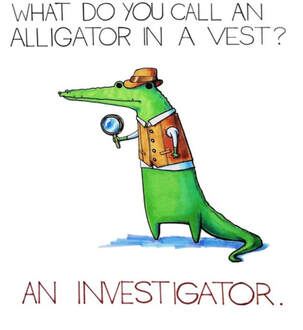 Empathic Listening Lesson #3: Get the Story Dr. Stephen Covey famously said "Diagnose before you prescribe." Every single profession that involves any type of problem-solving—law, medicine, sales, etc.—without exception, always first seeks to understand before taking any action. Understanding always precedes judgement. Lawyers go through a discovery process, which often includes building the opposing arguments case, too. Doctors examine, test, and diagnose before they prescribe drugs or treatment. Educators often do pre-assessment testing before teaching. Most people don't listen to understand. They listen to reply or to influence or get their way. So like we said last week, when we actively listen, not only must we be curious, we have to be silent. Not just physically silent, but quiet our mind, our judgements, and any urge to reply with our own stories, too. So, we become like an investigative reporter and try to get the story. And what do good investigative reporters do? They ask questions and then shut up and let the person talk. Some general guidelines as you start an empathic conversation:
Avoid "Why?" questions. Why avoid why questions? What word starts the answer to almost every 'why' question? Because. And the word because is a defense and the last thing we want someone to do during active listening is to become defensive. Defensiveness is the first stage of anxiety, anger, and crisis. Use the 7-Second Rule after asking a question. Wait for seven seconds before saying or asking anything else. Instead, try something like, “I can’t hear what you’re thinking.” Use “Really?” “Uh-huh…” “I see…” “Hmmm..” often. As they speak, let go of your own thoughts, what you would do, how it would make you feel, etc. Dig deep into what happened and how that was for them. Avoid the temptation to share your “Bigger Fish” story and don't offer possible solutions or give advice. Use open-ended questions to further discussion and exploration. Closed-ended (yes/no) questions tend to close down discussion. For every level of volume the person goes up, step down your volume one level. Ask questions that help them gain perspective. After key statements or conclusions, it's okay to use paraphrasing or even repeating back what someone has said and then pausing to see how it lands. Avoid and be wary of saying exaggerating words like must, should, always, and never. And when someone else uses them, consider just mirroring back the single exaggerating word in the form of a question. For example:
When we integrate these strategies into our active or empathic listening conversations, we create a safe and sacred space for both people; one where someone can truly share without judgement, advice, or having it contaminated by someone else's story. Just remember, it's not about the nail. NEXT WEEK: Empathic Listening, Lessons Four, Five, & Six Have an amazing journey today! Alan Mikolaj is a seasoned coach and leadership development consultant with nearly 20 years of experience. He is passionate about helping leaders transform their leadership, their teams, and their organizations. He has an impactful, professional approach driven by a passion for meaning and purpose, a growth mindset, and a commitment to excellence and service in order to drive change and results. Alan holds his Master of Arts in Clinical Psychology and Associate Certified Coach credential with the International Coaching Federation (ICF) and maintains their ethics and standards of behavior, including the standards regarding confidentiality. You can learn more about them on the ICF website. Transformational change starts with a conversation! Alan is on a mission to partner with like-minded leaders who want to make a positive difference in the world. Schedule your free, one-hour session by clicking here: Discovery Conversation with Alan Or call or email: Contact Page The roots of effective leadership lie in simple things, one of which is listening. Listening to someone demonstrates respect; it shows that you value their ideas and are willing to hear them. JOHN BALDONI It was late Monday morning as I drove into a haven nestled in the Texas Medical Center: St. Dominic Village. It's a Catholic retirement and retreat facility and the peace was palpable as I drove towards the Joseph A. Fiorenza Priest Residence building. I was going to meet an old friend who I had met many years ago when I was in the seminary and hadn't seen in some years. As I cozied into a soft couch, we began to talk and catch-up. After a few minutes, I suddenly became aware that he was doing something I routinely do in coaching: He was really listening. It felt like the tables had been pleasantly turned on me. I hadn't been listened to like that in a while. He would ask a question and then be silent—not just physically silent, but it was apparent that his mind and spirit were quiet too; listening without judgement or agenda. I was given a rare gift that day and I am grateful for it and I am grateful for him and his friendship. The Anagram of Empathic Listening Silence is the foundation of empathic listening. It's intriguing how the words silent and listen share the same letters, emphasizing the symbiotic relationship between the two. To truly listen like my friend did with me, we must not only quiet our mouths but also silence our inner chatter—the thoughts, judgments, stories, and distractions that often clutter our minds. The Bigger Fish Story Syndrome Consider the phenomenon of the "Bigger Fish Story Syndrome," when instead of fully engaging with the speaker, we're preoccupied with formulating our response or recounting our own experiences, usually to one-up them. While I'm telling you about the big fish I caught this past weekend, you're already gearing up in your mind about the bigger fish you caught a year ago. This self-centered approach inhibits genuine communication, perpetuating what psychologist Carolyn Schwartz aptly terms the "dyadic monologue culture." I share something that's bothering me and you say, "That's too bad. Let me talk about what's bothering me." Bracketing True listening requires discipline, as psychiatrist Dr. M. Scott Peck suggests. He called it bracketing, "the temporary giving up or setting aside of one’s own prejudices, frames of reference and desires so as to experience as far as possible the speaker’s world from the inside, inside his or her shoes.” By embracing this practice, we create an open space for curiosity and new knowledge, respect, appreciation, and growth. In his poignant description, psychologist Dan Gottlieb highlights the transformative power of silence for him, "There was a new silence inside me, and in the silence I was able to hear people’s hearts. We can only hear with our heart when the noises of the ego are quiet. That’s when we’re open... It can be found when we listen with our hearts." Thus, to listen effectively, we must heed the anagram of listen and be silent, allowing us to listen with our hearts. The principal form that the work of love takes is attention… By far the most common and important way in which we can exercise our attention is by listening. DR. M. SCOTT PECK  Stress, Executive Functioning, & Listening The executive functions of the frontal lobes play a pivotal role in empathic listening. In addition to the higher abilities of conceptual thinking, recognizing and learning patterns, decision-making, planning, and organization, one of the most important executive functions of the frontal lobe is inhibition. It is because of our frontal lobes that we can inhibit and delay thoughts and actions in order to delay higher-order gratification and outcomes. That is why empathic listening is such work. We have to make the choice to inhibit our thoughts, emotions, and actions—one of the highest functions of our intellect—and that will take practice. Stress and other negative states and emotions restricts blood flow to our frontal lobes, and therefore, impedes the functioning of our executive functions. So, like my friend, we must quiet our mouth, our mind, our heart, and our spirit in order to fully empathically listen. Meditate to Regenerate To hone our empathic listening skills, we can cultivate mindfulness through practices like breath work, meditation, contemplation, and yoga. By focusing on our breath and clearing our minds, we reduce stress and enhance our ability to silence distractions and attune ourselves to others. Basic meditation offers a simple yet powerful technique to cultivate silence and enhance inhibition. By dedicating just five to ten minutes daily to mindful breathing and awareness, we prepare ourselves to be better listeners, creating an empty space that invites genuine connection and understanding. Alan's Basic Meditation Technique
"Be still and know that I am God" Psalm 46:10 In the realm of empathic listening, silence isn't empty; it's full of potential. It's a space where hearts connect, minds engage, and understanding blossoms. So let's embrace the silent art of listening and unlock its transformative power in our personal and professional lives. NEXT WEEK: Empathic Listening, Lesson 2: Get the Story Have an amazing journey today! Alan Mikolaj is a seasoned coach and leadership development consultant with nearly 20 years of experience. He is passionate about helping leaders transform their leadership, their teams, and their organizations. He has an impactful, professional approach driven by a passion for meaning and purpose, a growth mindset, and a commitment to excellence and service in order to drive change and results. Alan holds his Master of Arts in Clinical Psychology and Associate Certified Coach credential with the International Coaching Federation (ICF) and maintains their ethics and standards of behavior, including the standards regarding confidentiality. You can learn more about them on the ICF website. Transformational change starts with a conversation! Alan is on a mission to partner with like-minded leaders who want to make a positive difference in the world. Schedule your free, one-hour session by clicking here: Discovery Conversation with Alan Or call or email: Contact Page We all need people who will give us feedback. BILL GATES The most effective leaders are committed to developing their team members and helping them reach professional goals—and let's be real, helping them to be more successful means you can all go out for fancier team lunches. And the bedrock of developing direct reports? Feedback — effective feedback. Knowing how to effectively deliver feedback not only grows and develops your team, it boosts engagement, team success, and your reputation as a leader. Plus, it reduces the chances of you hiding in the break room to avoid awkward encounters. But how do you deliver effective feedback? Below are eight tips or strategies to use as a springboard to help you deliver more effective feedback. 1) Create a psychologically safe environment and team culture. Dedication to creating psychological safety is a must for effective feedback. Elif Suner, a member of the Forbes Coaches Council, said in a recent article, "This dedication to psychological safety guarantees that direct reports will not only accept feedback, but also embrace it with warmth and openness." By encouraging the sharing of ideas and perspectives without the fear of repercussions and encouraging healthy and productive conflict and discussions, you lay the groundwork for providing feedback in a safe, goal-oriented manner. You can learn more about creating a psychologically safe workplace in this article from the Center for Creative Leadership: What Is Psychological Safety at Work? How Leaders Can Build Psychologically Safe Workplaces. 2) Remember the Magic Ratio. The Magic Ratio was pioneered by Dr. Daniel Gottman, a renowned psychologist with an extensive body of work. He found and others have confirmed that the secret to any stable and flourishing relationship lies within the balance of positive and negative interactions. Think of it as the PB&J of workplace interactions—a little sweetness goes a long way. The findings reveal that in order for a relationship to be stable and healthy, a minimum of five positive interactions are required to offset the impact of a single negative encounter or a ratio of 5:1. Researchers Marcial Losada and Emily Heaphy found that high-performance teams exhibit a positivity-to-negativity ratio or P/N of around 6:1 with a "flourishing zone" they dubbed "The Losada Zone." While most of us 'get' how too much negativity can be bad for team dynamics, they found that we actually need negativity in order to flourish as a team. But not just any negativity, "negativity" in the form of healthy, productive conflict and feedback. And, while we might think that 'always being positive' or having as much positivity as possible is a good thing, the research doesn't pan that out. Too much positivity or even toxic positivity is actually not good for team dynamics either. It's like finding the sweet spot between languishing in prison and the overwhelming exhilaration of bungee jumping off the Zhangjiajie Glass Bridge in China. If you want to learn more about the Magic Ratio and the Losada Zone, I wrote about it here: Enhancing Leadership Success Through the Magic Ratio. Keep in mind that feedback can be positive or critical/corrective. 3) Prepare in advance, if possible. Think of preparing your feedback as rehearsing for the big performance—you want to be ready to rock the feedback stage. While it may not always be possible, taking a few short minutes to prepare will enhance feedback success. Consider including things like your intention or why you're giving the feedback. Jot down a few bullet points so that you don't miss anything (see below). 4) Do it quickly and frequently. Whether you're delivering positive feedback (rewards and recognition) or critical/corrective feedback, the sooner, the better. Giving timely feedback while memories are fresh have a greater impact and allow us to discover more about the behaviors and the circumstances that may have been driving them. Don't wait until next month's one-on-one. You don't want your feedback to be like forgetting to water a plant—don't wait until it's a shriveled mess to give it a drink. Frequent feedback to everyone on your team builds a culture of both reward and recognition, where effective actions and results get rewarded, and accountability. Not holding people accountable damages your credibility as a leader and it is a sure way to drive away, or at the least disengage, your high performers. Think of delivering critical feedback as tending to your garden—you need to pull out the weeds while they're small before they take over. 5) Be specific. Focus on vision, mission, values, goals and behaviors, not the person. Feedback, at its core, is geared to either reinforce or discourage behaviors. We reinforce behaviors that exemplify values and mission and promote and lead to goal achievement. We discourage behaviors that are antithetical to our values or do not lead to goal achievement, like customer service, safety, efficiency, and quality. Think of it as being the director of a play—you're critiquing the performance, not the actor. So, be specific. Name the behavior(s) and the impact they made on others, goals, culture, etc. Differentiate between facts about what happened, your thoughts and the stories in your head about it, how it made you feel, and what you actually want in the future. This is called the Experience Cube. Think of it as building a LEGO set—you need clear instructions to get the final masterpiece. Name-calling and judgements about the person violate our number one strategy above. Plus, nobody likes a workplace with more drama than a daytime soap opera. 6) Approach with curiosity: Ask a question first. This strategy helps you immensely with the previous one. We are all subject to the confirmation bias. When we're asked why we did something
7) Approach feedback with compassion and empathy. A new trend in leadership is integrating coaching techniques into your leadership—part of why you're there is to listen, understand, and help them grow. Empathic listening and compassion are two strong tools to do that and you build psychological safety and strong relationships along the way. They are also great for healthy, productive conflict and feedback. This takes extra energy, focus, and self-awareness. You listen to understand and not to respond or judge. You probe for deeper understanding and reflect back what others are saying to check that you got it right. What you hear may sometimes actually cause you to pivot from your original feedback. Think of this strategy as navigating through a maze—you may need to take a few twists and turns to reach the solution. 8) Invite them to share their questions and any concerns. As you wrap up, think of putting a cherry on top of the feedback sundae—the perfect ending to a constructive conversation. You do that by inviting them to share any questions or concerns. This allows further sharing, clarification, and understanding. Then, go back full circle to your intention and why you gave the feedback and what you expect moving forward. If it's positive feedback, close with the impact on mission, vision, values, and/or goals. And no matter whether it was positive or constructive feedback, always close by thanking them in some way. With these strategies in your toolkit, you're poised to revolutionize the way you deliver feedback. So, buckle up and prepare to embark on a journey of growth, development, and perhaps, a little fun along the way. Have an amazing journey today! Alan Mikolaj is a seasoned coach and leadership development consultant with nearly 20 years of experience. He is passionate about helping leaders transform their leadership, their teams, and their organizations. He has an impactful, professional approach driven by a passion for meaning and purpose, a growth mindset, and a commitment to excellence and service in order to drive change and results. Alan holds his Master of Arts in Clinical Psychology and Associate Certified Coach credential with the International Coaching Federation (ICF) and maintains their ethics and standards of behavior, including the standards regarding confidentiality. You can learn more about them on the ICF website. Transformational change starts with a conversation! Alan is on a mission to partner with like-minded leaders who want to make a positive difference in the world. Schedule your free, one-hour session by clicking here: Discovery Conversation with Alan Or call or email: Contact Page Leader development strategies in organizations that are products of the same zombie ideas carrying high expectations coupled with the pressure to sort out everyday problems may provide no constructive avenue for leader development either. TATIANA BACHKIROVA & PETER JACKSON Oxford Brookes Business School  Understanding 'Zombie Leadership' In a recent groundbreaking paper titled, Zombie leadership: Dead ideas that still walk among us, researchers from Australia, Sweden, and the UK shed light on a concept that's quietly infiltrated many organizations: Zombie leadership. Drawing on a similar concept from economics research, these are leadership concepts upheld not by evidence or critical analysis, but by groups pushing their own agendas. As the authors aptly put it, controlling the narrative of leadership means controlling power dynamics within organizations and society. Some of these zombie leadership ideas include:
These misconceptions often seep into leadership training programs, hindering genuine development and perpetuating unrealistic standards. And a great deal of dominant leadership theories that are relied upon for training are about heroic leaders and relatively passive masses—definitely a zombie idea. In addition, these theories are abstract and difficult to put into practice. They also set up an ideal standard so high, that it challenges actual leaders to strive for that ideal image and performance that can cause one to lose confidence and feel frustrated and secretly defeated. The researchers go into depth exploring the eight "axioms" of zombie leadership that they identify and the threats they each pose. They said, "The threat posed by zombie leadership is manifold and it contributes to the creation of a deeply unequal world... " What do leaders really want and need? Recognizing the shortcomings of zombie leadership, researchers at Oxford Brookes Business School delved into what leaders genuinely require to tackle challenges and grow. Their study, What do leaders really want to learn in a workplace? A study of the shifting agendas of leadership coaching, dissected the interplay between external and internal factors shaping leaders' learning needs. They recognized that "Leader development strategies in organizations that are products of the same zombie ideas carrying high expectations coupled with the pressure to sort out everyday problems may provide no constructive avenue for leader development either." By analyzing coaching sessions over time, the researchers identified a spectrum of topics reflecting leaders' evolving needs. They examined how both outside factors (leaders' environments) and personal (or internal motivations and mechanisms) come together to impact leaders' experience and learning needs at work. They asked coaches in long-term coaching relationships with leaders ( six months to one year) to document coaching themes and time-tagged them at three points in the coaching relationship: Beginning, middle, and end. This allowed them to create a taxonomy of coaching topics that represented the intersection between the clients' external and internal demands that create their experiences. Coaching topics are what the client brings to the coaching session to focus on in order to grow, develop, and strategize action plans with the purpose of achieving goals and meeting developmental needs. This strategy allowed them to not only identify what leaders wanted to learn but also when these topics typically came up for leaders throughout the coaching relationship. What leaders really want Forty topics emerged that were grouped into eight categories.
Key take-aways
Conclusion In a landscape littered with zombie leadership ideas, it's imperative to shift focus towards authentic leader development. By acknowledging leaders' multifaceted needs and providing tailored support, organizations can foster environments where leaders thrive and grow, transcending the limitations of outdated paradigms. Have an amazing journey today! Alan Mikolaj is a seasoned coach and leadership development consultant with nearly 20 years of experience. He is passionate about helping leaders transform their leadership, their teams, and their organizations. He has an impactful, professional approach driven by a passion for meaning and purpose, a growth mindset, and a commitment to excellence and service in order to drive change and results. Alan holds his Master of Arts in Clinical Psychology and Associate Certified Coach credential with the International Coaching Federation (ICF) and maintains their ethics and standards of behavior, including the standards regarding confidentiality. You can learn more about them on the ICF website. Transformational change starts with a conversation! Alan is on a mission to partner with like-minded leaders who want to make a positive difference in the world. Schedule your free, one-hour session by clicking here: Discovery Conversation with Alan Or call or email: Contact Page The mission of the individual needs to align with the mission of the team, which needs to align with the mission of the organization. CHARLES GARFIELD Author of the widely acclaimed "Peak Performance" trilogy: Peak Performers, Team Management, & Second to None  In the tapestry of leadership, purpose serves as the guiding thread weaving together individuals, teams, organizations, and society at large. Charles Garfield's profound insight encapsulates the essence of purpose-driven leadership—a philosophy that transcends individual aspirations to embrace collective missions that resonate with the pulse of humanity and the planet. At the core of purpose-driven leadership lies the acknowledgment that each individual possesses a unique life mission and a set of deeply held core values. In addition to that, leaders need a personal leadership philosophy. These elements serve as the compass guiding one's journey, illuminating the path toward fulfillment and significance. However, the true power of purpose emerges when it converges with the missions of teams, organizations, and society—a harmonious alignment that ignites transformational change. Garfield's words echo the interconnectedness of missions, emphasizing the imperative of alignment. Just as a conductor orchestrates a symphony, a purpose-driven leader harmonizes the diverse voices within their team, aligning individual passions with collective goals. This alignment fosters a sense of belonging and shared purpose, fueling collaboration and innovation. Yet, the scope of purpose extends beyond the confines of the organization. A purpose-driven leader recognizes their responsibility to contribute to the greater good of society and the planet. They understand that organizational success is not measured solely by profit margins but by the positive impact it generates on communities and the environment. Thus, they strive to align the mission of their organization with broader societal and planetary needs, fostering sustainability, equity, and social responsibility. More than ever, we need purpose-driven leaders like this today. Leveraging purpose as a catalyst for change requires intentionality and vision. It begins with the introspective journey of self-discovery, as leaders identify their own life mission, core values, and leadership philosophy. Armed with this clarity, they can then articulate a compelling vision that inspires and mobilizes their team toward a common goal. Creating a shared mission and values statement with the team reinforces a sense of unity and direction, cultivating a culture rooted in meaning and purpose. Through open dialogue and collaboration, leaders empower their team members to contribute their unique strengths and perspectives, fostering a sense of ownership and commitment. Studies continue to demonstrate how internal or intrinsic motivators and reinforcement, like meaning and purpose, are what really drives behavior, engagement, retention and more. The journey toward alignment does not end within the confines of the organization. Purpose-driven leaders recognize the interconnectedness of their mission with the broader context of society and the planet. They champion causes that promote social justice, environmental sustainability, and community empowerment, aligning the organization's efforts with the greater good. In the tapestry of leadership, purpose serves as the unifying thread that connects individuals, teams, organizations, and society. As leaders, it is our responsibility to weave a narrative of purpose that transcends boundaries and inspires collective action. By aligning our missions with the needs of the world around us, we can create a ripple effect of positive change that reverberates far beyond the confines of our organizations and our lifetimes. In the grand symphony of life, let purpose be our guiding melody—a harmonious blend of individual aspirations and collective endeavors, resonating with the heartbeat of humanity and the planet we call home. To embark on your own journey of purpose-driven leadership, learn more about our Purpose-Driven Leadership Program here.
I am who I am… This is what you shall tell the Israelites: I AM sent me to you. THE VOICE OF GOD Exodus 3:14 (Amplified Bible, Classic Edition) The name of God for the Israelites is the word Yahweh, which means, "He is." The Hebrew word from the Torah, ‘ehyeh, means “I Am.” When Moses asked who should he say who sent him when he encountered the burning bush, God's answer in the original ancient Hebrew was “’ehyeh ’asher ’ehyeh” or “I am who I am” or in other translations, "I am that I am." Jesus of Nazareth later makes reference to this using the word "'ehyeh" when referencing himself when he is quoted as saying, “I solemnly declare it: before Abraham came to be, I Am” (John 8:58). According to the story, this prompted people in the crowd to pick up stones to throw at him at such blasphemy. He escaped without incident. The Sanskrit word Aham, also means "I am." The ancient OM pronounced "AUM", familiar to many who practice meditation, is a derivative of Aham. OM is considered to be the original name of God by many Hindus and that by repeating the sound as a mantra during meditation, can help you deeply relax and achieve higher levels of consciousness and powers of manifestation. Hindus believe that in the creation of the universe, the divine, all-encompassing consciousness took the form of the first and original vibration, manifesting as the powerful sound AUM. The sound of AUM resonates in many religious and spiritual traditions for the name of the Divine Creating Force or Ultimate Being: Allah, Alpha and Omega, I Am, Buddha, God, Krishna, Ra, Tao, or Yahweh, for example. The sound of “ah” is common in all of these names. Dr. Wayne Dyer says about this sound, “…you begin to manifest without the use of the mind. It is done through the power of sound… It is the first sound of creation.” Saying positive “I am...” statements and using the AUM sound as a mantra can be a powerful experience, especially if done positively, routinely, and consistently. It can help you enter a meditative state more quickly, relax more fully, and can help you achieve higher levels of consciousness or a higher state of being. It calms the mind and brings about a peaceful state. It is then that you are most creative, more focused, make better decisions, and are more effective. Some believe that invoking the Great I Am invokes the power of creation and manifestation and so, to be very careful about what we follow with any "I am..." statement. Our negative self-talk like, "I am stupid" or "I am a failure" or "I am poor" can, whether through human psychology or the power of unwittingly invoking God's name, be self-fulfilling prophecies or invoking a universal spiritual power. In The Purpose-Driven Leadership Program, I share a powerful, inspirational YouTube video that I sometimes use as a great way to start my day or give myself a pick-me-up whenever I feel like I need one. What Successful People Do In the First 8 Minutes of Their Morning features several prominent speakers, including Joel Olsteen. In the video he addresses the power of "I am..." statements. Today I want to share it with you below. One of my favorite ways to integrate the AUM sound comes from a powerful musical meditation that Wayne Dyer created to support his book, Wishes Fulfilled: Mastering the Art of Manifesting. He reports that in his research while writing his book, he came upon another book by James F. Twyman, The Moses Code, and found that tonal qualities could be created to match the Great I am. I am so grateful that it is still available on YouTube and I use it often. It's beautiful and peaceful tones and music while meditating or contemplating can be powerful. It opens with some explanation by Dr. Dyer and the actual meditation starts at 07:20. It's a long video. So, I usually only listen to just a few minutes while I sit and do some block breathing and either contemplate some aspects of my Life Mission/Leadership Philosophy and Core Values statement or just meditate, quieting my mind and body. Enjoy! Have an amazing journey today! Alan Mikolaj is a seasoned coach and leadership development consultant with nearly 20 years of experience. He is passionate about helping leaders transform their leadership, their teams, and their organizations. He has an impactful, professional approach driven by a passion for meaning and purpose, a growth mindset, and a commitment to excellence and service in order to drive change and results. Alan holds his Master of Arts in Clinical Psychology and Associate Certified Coach credential with the International Coaching Federation (ICF) and maintains their ethics and standards of behavior, including the standards regarding confidentiality. You can learn more about them on the ICF website. Transformational change starts with a conversation! Alan is on a mission to partner with like-minded leaders who want to make a positive difference in the world. Schedule your free, one-hour session by clicking here: Discovery Conversation with Alan Or call or email: Contact Page |
Alan Mikolaj
Alan Mikolaj is a a professional, experienced, positive, and passionate speaker, leadership and organizational development consultant, change agent, author, and coach. He holds his Master of Arts degree in Clinical Psychology from Sam Houston State University. He is a certified graduate coach from Coaching Out of the Box and holds his ACC and membership with the International Coaching Federation (ICF). Free Discovery Conversation!
Impactful change starts with a conversation! Schedule your free, one-hour session by clicking here: Discovery Conversation with Alan
Or call or email: Contact Page In his third book, A Travel Guide to Leadership, Alan offers you simple, fundamental, and powerful lessons that have the power to transform you, your relationships, and your career.
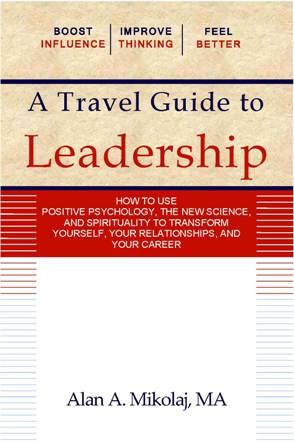
Blog Archives
May 2024
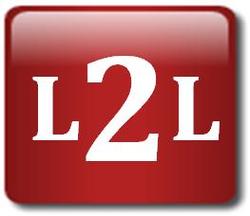
Linked2Leadership
Ranked #1 Business Blog! |
|
CONTACT
TEL: 346-291-0216 EMAIL: alan@alanmikolaj.com |










